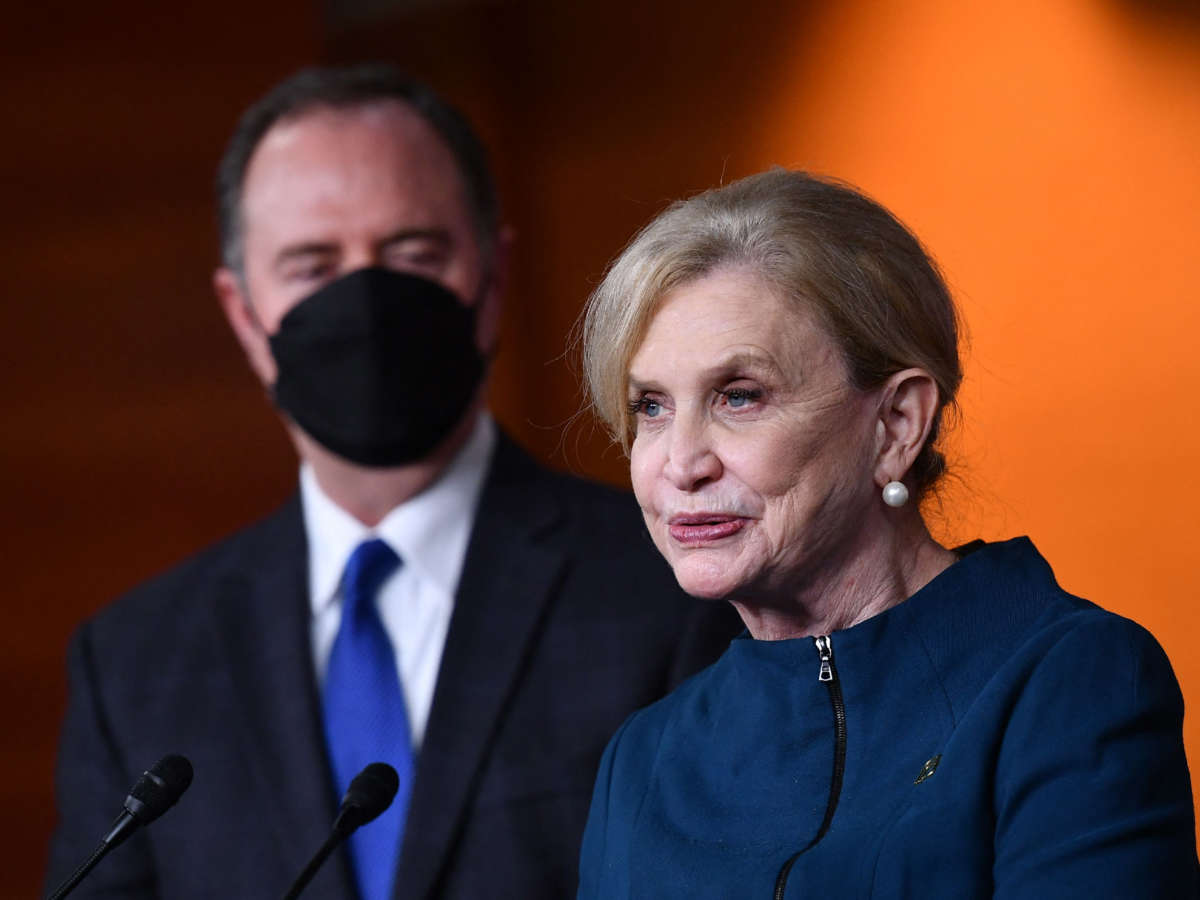Two House committees sent a joint letter to elections officials in four states on Thursday, asking them to detail how misinformation and disinformation have affected the way that election contests are managed, and how new state laws based on such misinformation are causing harm to voters.
House Oversight Committee chair Rep. Carolyn B. Maloney (D-New York) and House Administration Committee chair Rep. Zoe Lofgren (D-California) penned the letter to state election officials in Arizona, Florida, Ohio and Texas on Thursday, requesting that they provide information regarding efforts to counter election disinformation and misinformation in order to “protect the integrity of federal elections in their states.”
The congresswomen said the committees need the information to better understand “the scope and scale of election misinformation” in those states, particularly how the “flood of false information” has impacted voters’ right to cast a ballot.
In a press release announcing the inquiry, the committees noted that these four states in particular are of concern, as GOP state lawmakers have “taken steps that interfere with election administration and restrict Americans’ right to vote and have their votes counted fairly and accurately.”
“The Committees are particularly concerned by reports over the past year that some state officials have relied on false, debunked election conspiracy theories to enact new laws and take other steps that could undermine future elections,” Maloney and Lofgren said. Newly enacted laws that “unnecessarily involve partisan actors in election administration and could lead to the overturning of legitimate election results” are also of concern to the committees.
The congressional committees are asking that the information they’ve requested be sent back to them no later than May 4.
In a Twitter thread explaining why they sent the letters, Maloney made clear that their efforts were in response to Republican attempts to disenfranchise voters.
“The 2022 elections were fair and the @GOP is poisoning the well,” Maloney wrote. “Misinformation in our electoral system weakens public trust of an electoral system that has been in place for generations.”
Former President Donald Trump’s loss in the 2020 presidential election led many Republican-controlled states to pursue — and ultimately enact — unnecessary and over-burdensome legislation, which lawmakers justified by citing Trump’s false claims of election fraud. Many of these laws make it more difficult to vote, particularly for members of marginalized communities.
At the end of 2021, 19 states passed more restrictive voting laws, according to an analysis from the Brennan Center for Justice. At the time of that review, at least 152 bills that were authored that year were set to be carried over into 2022, with 13 additional bills pre-filed for consideration as well.
The organization said it was clear that these bills were in response to lies about election fraud that were disseminated by Trump and his allies.
“These early indicators — coupled with the ongoing mobilization around the Big Lie (the same false rhetoric about voter fraud that drove this year’s unprecedented wave of vote suppression bills) — suggest that efforts to restrict and undermine the vote will continue to be a serious threat in 2022,” the Brennan Center said on its website.


